Lecturer's widow hits out at Cardiff University workload
- Published
Diane Anderson speaks out over the pressure her husband was under
The widow of a university lecturer who killed himself has demanded action to tackle workload pressures to save other families having their "dad taken away".
Diane Anderson said Cardiff University knew her husband Dr Malcolm Anderson was under significant pressure.
Internal surveys, seen by BBC Wales, show a third of staff said they must work unreasonable hours to fulfil their job requirements.
Cardiff University said they take the welfare of staff extremely seriously.
The inquest into Dr Anderson's death heard he had left two notes before he fell from the university building in which he worked - one to his family and another referring to work pressures and long hours.
He was 48 when he died.
According to his wife, he was working evenings, weekends and holidays to keep on top of marking, preparing lectures, setting exam papers and answering emails. She said the university should have known he was struggling.
"He did tell them. In his appraisals he told them that his workload was massive and it was unmanageable but nothing ever changed," said Mrs Anderson.
"There was no account taken for it. And it was just more of the same."
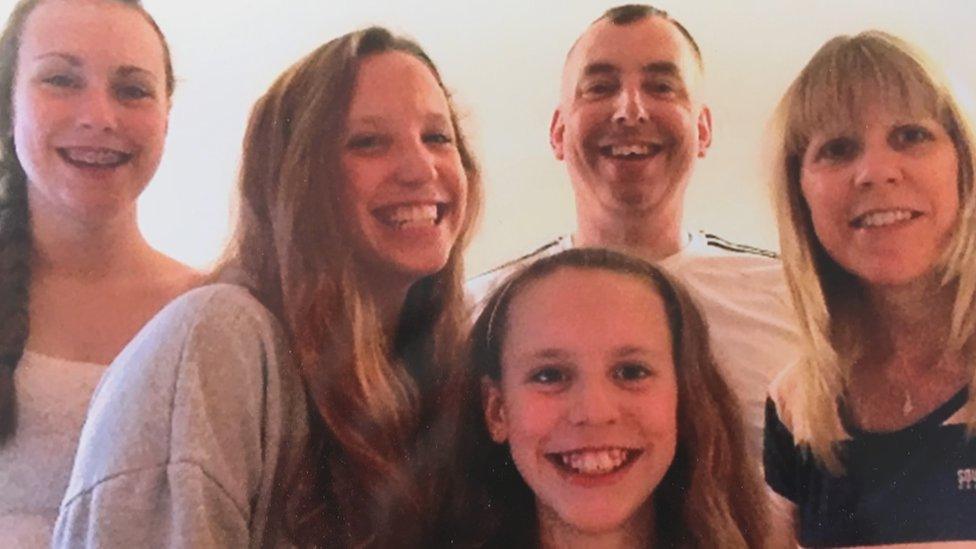
Father-of-three Dr Anderson, an accountancy lecturer, died in February 2018
Annual work appraisals show Dr Anderson, who lived in Weston-super-Mare in Somerset, raised concerns that he was unable to take annual leave due to his workload in 2015, 2016 and 2017.
He was dealing with over 600 students and on the day he took his life, in February 2018, he was in the middle of marking 418 exam papers, and preparing for a day of lectures.
His wife said he had also accepted an additional role within the Business School, fearing that turning it down could count against him in future.
"He didn't want to apply for that job because he knew he was really going to struggle and the stress involved. It was just too much," she said.
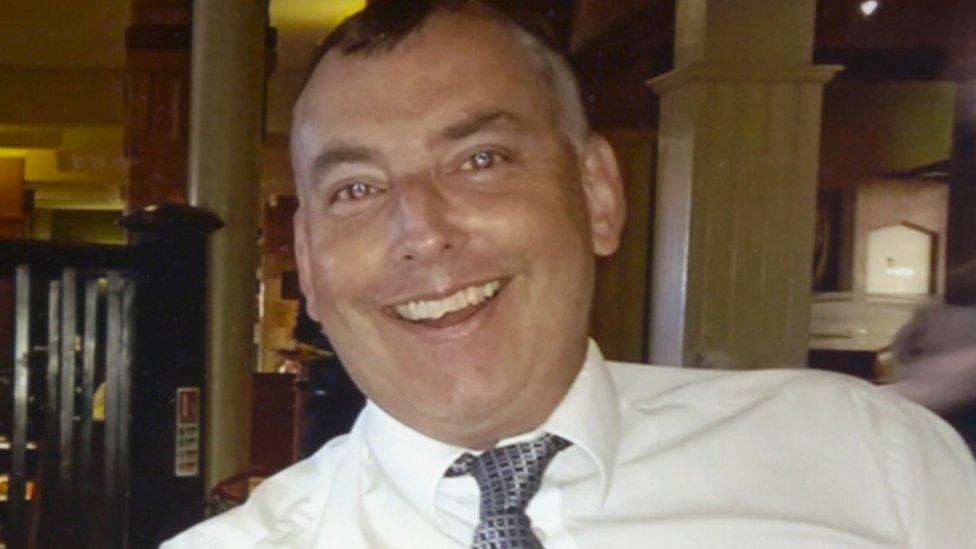
Cardiff University said Dr Anderson was a "committed, dedicated and well-liked" member of staff
More than 600 members of staff have signed an open letter to the university's vice-chancellor, executive board and council, urging them to safeguard others from pressures of excessive workloads.
Among them was Prof Victoria Wass, one of Dr Anderson's colleagues at the Business School.
She said the university's work allocation model - introduced in 2016 - should be replaced because it significantly underestimates the time it takes to do key tasks and ignores other duties altogether.
"Staff have no confidence in [the model] and no confidence in management who keep trying to implement it," she said.
"We ought to be acting on it. We ought not to be leaving staff thinking they are alone in being unable to manage their workload and that there's some particular weakness on their behalf that they can't do it. Because in the end that is what you are left feeling."
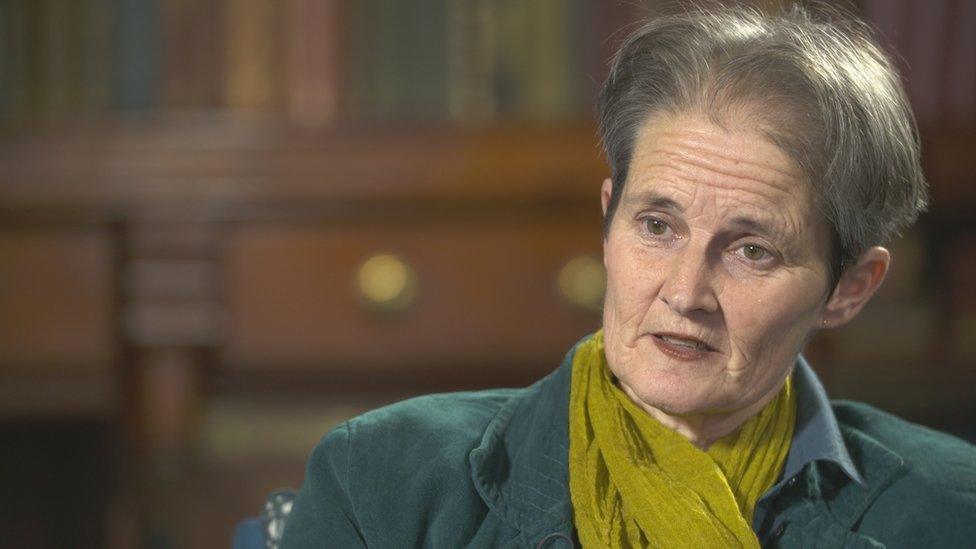
Prof Victoria Wass said the university's timetabling system "obscures" the increase in workload
Cardiff University said it was reviewing the work allocation model.
A spokesperson added: "We are committed to working with all the members of the university community, including the recognised trade unions, to ensure the welfare of our staff.
"Over the last four years we have been seeking to establish a fair and transparent framework for allocating workloads."
Cardiff University has announced plans to cut 380 posts over the next five years to deal with a budget deficit of more than £20m.
Prof Wass believes those financial pressures will hurt staff and students.
"There are no plans to cut back on students, the plan is to maintain or even increase student numbers but cut back on the staff. It's an impossible situation," she added.
The University and College Union in Wales said new demands such as online marking and National Student Surveys had increased workload pressures on staff in institutions across the country.
It said: "Employers can do so much, but the governments and their agencies must start to impact assess their requirements of the post-16 sector and the potential impact that a change in policy or practice will have on workload."

The university hopes to make many of the 380 job cuts through voluntary redundancies and recruitment controls
The Welsh Government said it was due to make an announcement on supporting mental health and wellbeing at universities, colleges and students.
It added: "We believe in higher education as a common good. Welsh universities' overall income levels have increased by over £200m since 2012, and we expect universities to provide the best possible student experience whilst also being active at community, national and international levels."

If you are struggling to cope, you can call Samaritans free on 116 123 (UK and Ireland) or visit the BBC Action Line website.

Wales Live is on BBC One Wales at 22:35 GMT on Wednesday and is also available on the BBC iPlayer.
- Published6 June 2018
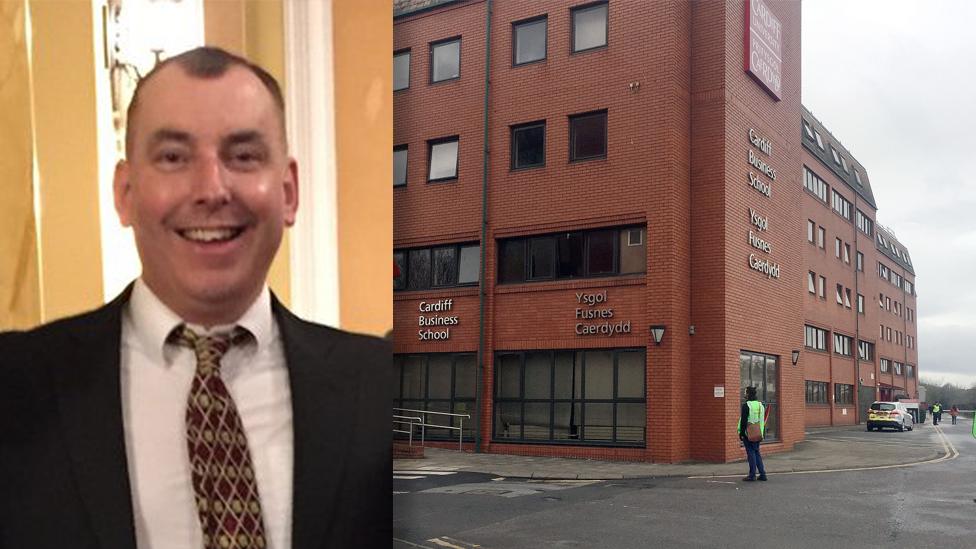
- Published23 February 2018
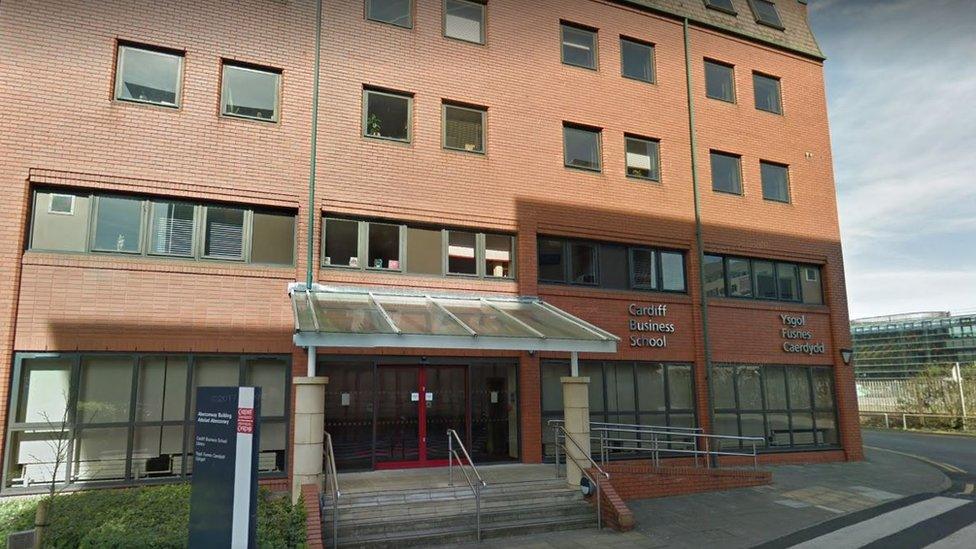
- Published12 February 2019

- Published22 February 2018
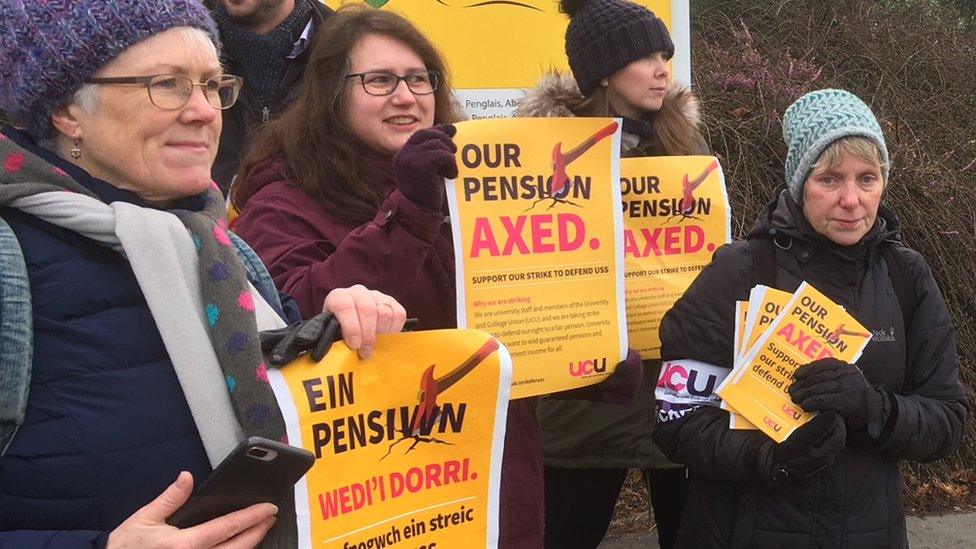
- Published26 December 2018

- Published3 December 2018
